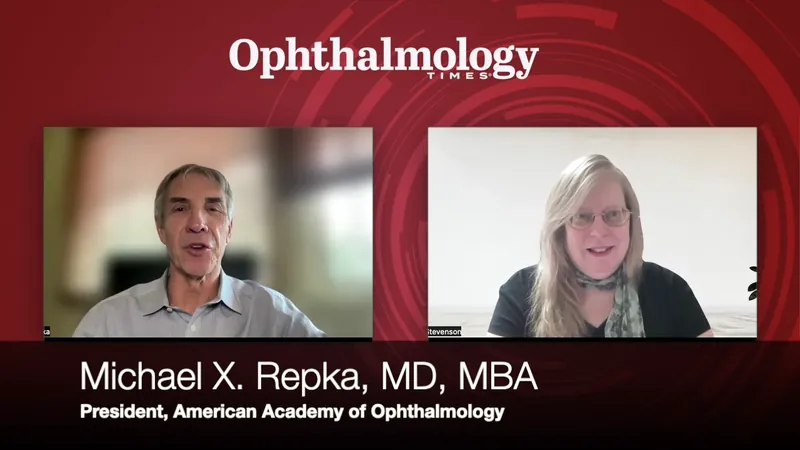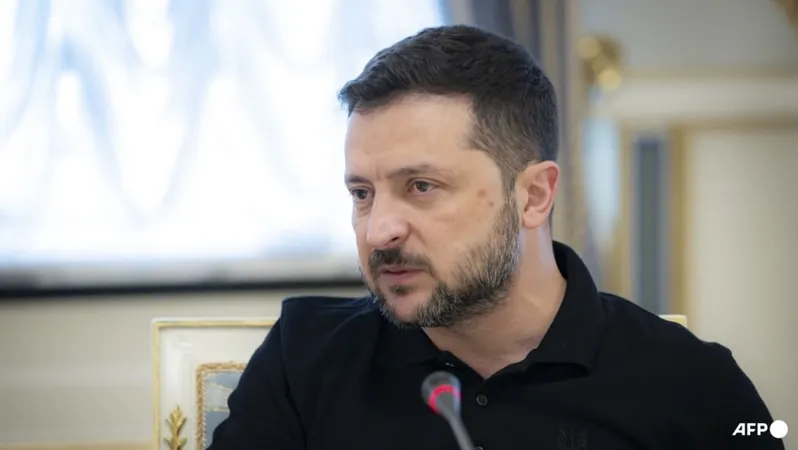
Unlocking the Future of Myopia Control: Insights from Dr. Michael X. Repka Ahead of the CCOI Workshop
2025-08-27
Author: Li
A Crucial Gathering in Paris
As the CCOI Myopia Workshop approaches on September 8 in Paris, anticipation builds around the insights of Dr. Michael X. Repka, MD, MBA, the program co-chair and president of the American Academy of Ophthalmology. This pivotal event aims to unite a diverse group of clinicians, researchers, regulators, and industry leaders to tackle pressing questions in myopia research and treatment.
Cultivating Open Dialogue
Dr. Repka emphasizes that this workshop isn't about delivering definitive answers; rather, it's a forum for robust dialogue that will shape future guidelines. "We propose possible answers and encourage participants to reach a consensus on best practices for clinical trial designs and regulatory influences," he noted.
Revisiting Trial Durations
A key focus of the discussions will be on the duration of clinical trials. Dr. Repka reflected on shifts in perspective over the last decade. "Previously, we thought 2 to 3 years was sufficient, but new insights suggest we may require longer follow-ups to fully understand treatment outcomes," he stated, cautioning against premature optimism seen in earlier studies from Singapore.
Tackling Research Challenges
Long-term studies in myopia are not without their challenges, including funding issues and the diversity of patient populations, which complicate trial designs. Dr. Repka noted, "The heterogeneity of this global population makes it difficult to meet all endpoints across various subgroups." Moreover, the financial viability of therapies hinges on industry engagement and acceptable pricing for patients.
Harmonizing Standards for Faster Progress
One proposed solution for advancing myopia research is the harmonization of regulatory standards across different regions. Dr. Repka suggested, "Achieving similar endpoints internationally could foster collaboration and expedite research outcomes beneficial to patients and the entire investment community."
Accessibility and Adoption Issues
Access to treatments varies widely by country, influenced by insurance systems and physician readiness to embrace new therapies. Successful broad adoption will likely require a shift from niche treatments to mainstream care, driven by parental demand.
Exploring Innovative Therapies
Looking ahead, Dr. Repka highlighted both pharmacologic and device innovations as promising avenues for myopia control. While atropine eye drops have shown effectiveness, optimal dosing remains under investigation. New lens and contact lens designs also present exciting opportunities, although more data from Western populations is critical for their safe implementation in younger patients.
Accelerating Consensus and Understanding Myopia's Impact
The workshop's ultimate aim is to catalyze consensus-building in the field, as Dr. Repka noted, "Live discussions can distill years of email conversations into actionable insights in just a few weeks." The importance of addressing myopia has surged, as it is now recognized as a serious condition with potential long-term complications. As Dr. Repka succinctly stated, the goal is to demonstrate immediate benefits that will translate into lifelong advantages.


 Brasil (PT)
Brasil (PT)
 Canada (EN)
Canada (EN)
 Chile (ES)
Chile (ES)
 Česko (CS)
Česko (CS)
 대한민국 (KO)
대한민국 (KO)
 España (ES)
España (ES)
 France (FR)
France (FR)
 Hong Kong (EN)
Hong Kong (EN)
 Italia (IT)
Italia (IT)
 日本 (JA)
日本 (JA)
 Magyarország (HU)
Magyarország (HU)
 Norge (NO)
Norge (NO)
 Polska (PL)
Polska (PL)
 Schweiz (DE)
Schweiz (DE)
 Singapore (EN)
Singapore (EN)
 Sverige (SV)
Sverige (SV)
 Suomi (FI)
Suomi (FI)
 Türkiye (TR)
Türkiye (TR)
 الإمارات العربية المتحدة (AR)
الإمارات العربية المتحدة (AR)